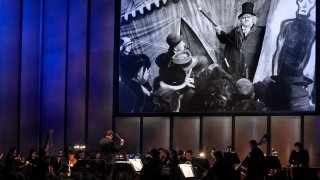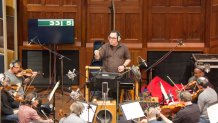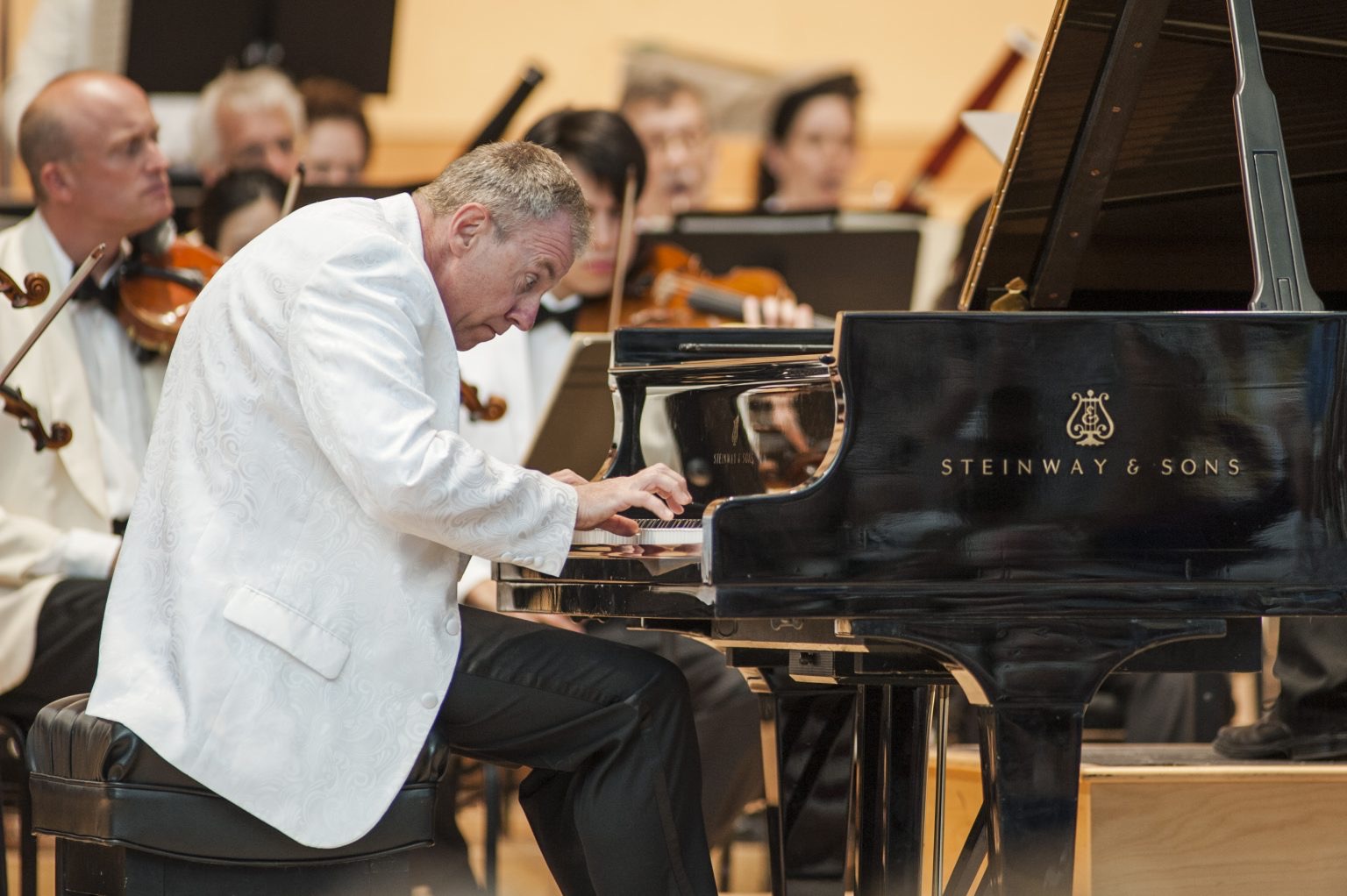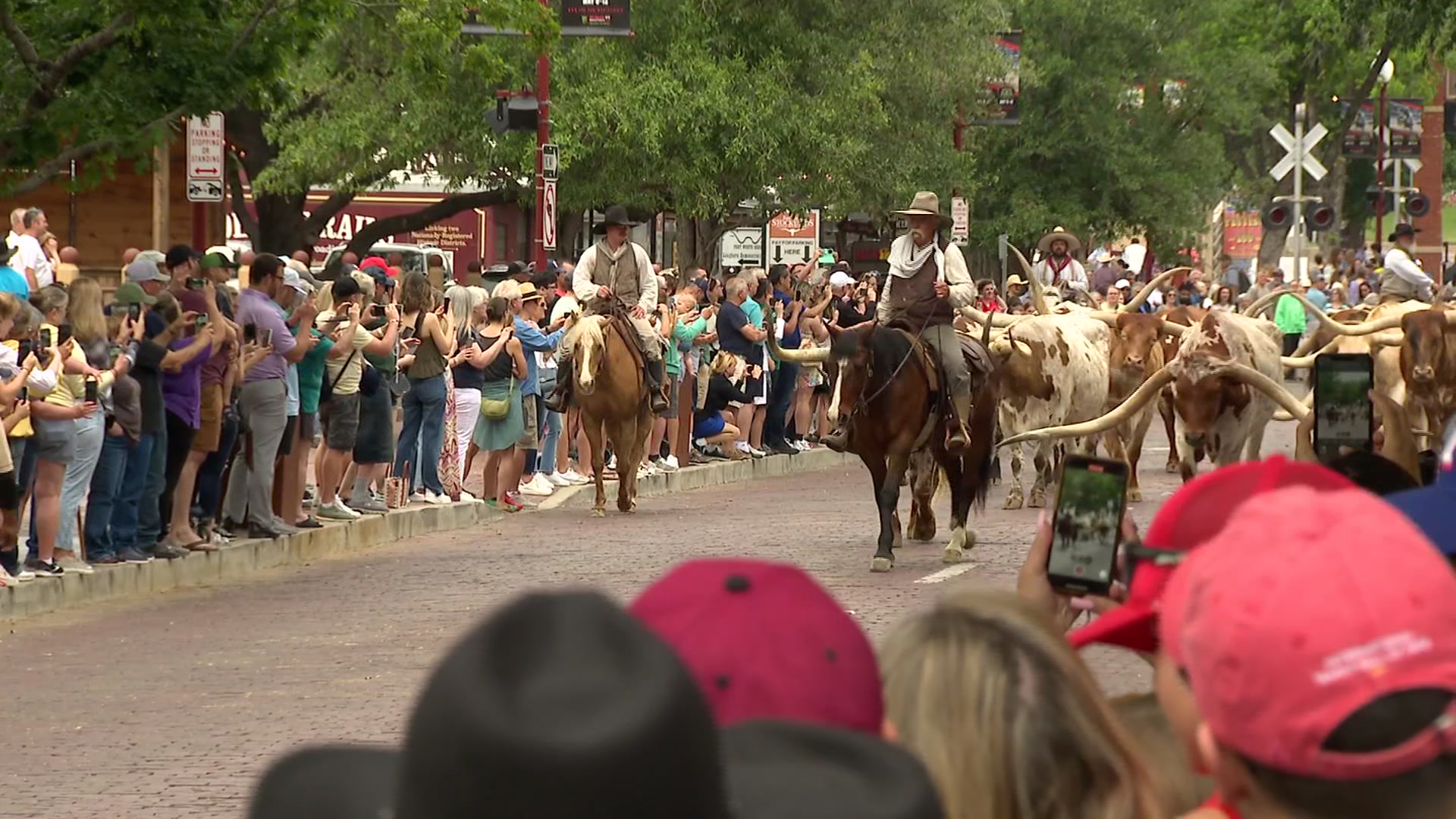
The first time film composer Joe Kraemer watched F.W. Murnau’s silent film Sunrise: A Song of Two Humans, he was on a plane, flying to Austria to teach a film music workshop. The trip turned out to be inspirational for the film score he would eventually write for the Dallas Chamber Symphony.
“The first thing that attracted me to it was the time and place it is set in. It felt very European to me,” Kraemer said. “During the time that I was writing the score, I spent two weeks in Vienna and other parts of Austria, and I think that had a lot of influence on reaction to the material and so I tried to combine my love of great American composers like Aaron Copland, George Gershwin and John Williams with the European sensibilities of Grieg, Brahms and maybe even Stravinsky and Tchaikovsky.”
The Dallas Chamber Symphony premiered its score in 2016 and the orchestra will revisit it for its season-opening concert at Moody Performance Hall in the Dallas Arts District on Oct. 10.
Sunrise is adapted from “The Excursion to Tilsit,” a 1917 short story by Hermann Sudermann and represents Murnau’s American directorial debut. After the silent film’s premiere in 1927, it won three Academy Awards in 1929, including Leading Role for Janet Gaynor. In 1989, the U.S. Library of Congress selected the film for preservation in the National Film Registry.
Get DFW local news, weather forecasts and entertainment stories to your inbox. Sign up for NBC DFW newsletters.

Kraemer, best known for his scores for The Way of the Gun, Jack Reacher, and Mission: Impossible – Rogue Nation, was impressed with the film’s modern artistry.
“Many silent films sometimes feel a bit like pantomime, a bit over the top, highly theatrical. I was surprised with this film, how it seemed to work in a modern way. That the acting, the staging and frankly, even some of the visual effects felt surprisingly modern. There didn’t seem to be a lot I had to forgive, so to speak, in terms of filmmaking,” Kraemer said.
The Scene
The film centers on three characters: a farmer, his wife, and a vacationing city woman who tests the couple’s relationship. The wife, played by Gaynor, is the most sympathetic throughout the film.
“She had a fairly tender and sincere musical approach,” Kraemer said.
The score reflects the husband’s transformation and eventually, his catharsis.
“His story musically evolves from a darker place to a brighter place,” Kraemer said.
The city woman’s musical theme derives from a single action in the film.
“Her music starts actually with something in the film. She goes to his window and whistles and that whistling inspired a musical treatment,” Kraemer said.
Kraemer has written scores for over 100 films, TV movies, episodic television, and film shorts. Whether the project is large or small, his compositional goal is the same.
“In terms of the craft of what a film composer does in any film, one is looking at the story, looking at the characters, and then trying to create a musical setting that perhaps guides the audience or leads the audience down a path that the director and the writer and the actors are all hoping together to bring the audience through that journey,” Kraemer said.
The difference in Kraemer’s approach to projects is often the size of the ensemble and the circumstances of the performance. For Mission Impossible – Rogue Nation, he was creating a score for an orchestra of 90 musicians recording in Abbey Road Studios in London. During recording, musicians would have breaks and recordings of music would be edited. For the Dallas Chamber Symphony, Kraemer created a score for 17 musicians who would perform the work for a live audience without a break or intermission.
“In the case of the score to Sunrise, I was trying to get the scale of emotion that is frankly not too hard to get when you have 90 people playing together in a room. I was trying to get that out of 17 people. It took much more skill in arranging and orchestration to get that scale of emotion out of a smaller group,” Kraemer said.
Kraemer attended the Dallas Chamber Symphony’s premiere of his score in 2016.
“It was actually the first time in my life where something orchestral that I had written has been performed live for an audience so there was no way I was going to miss it. It had been a lifelong dream to have something of mine done in a concert,” Kraemer said.

In 2017, he returned to Baden to conduct his own score of Sunrise in front of a live audience, a first for him.
“It was exciting. Conducting a film live to picture is sort of like jumping out of an airplane without a parachute. Once the movie starts, it’s a train that doesn’t stop until it reaches its destination,” Kraemer said. “One has to adapt if anything goes wrong, either technically or with my conducting or if a musician misses a cue or if I miss a cue for that musician, anything can happen. One has to be able to adapt to that and get the entire thing back on track if it goes off the rails.”
He went on to record selections from the Sunrise score, using the chamber orchestra he conducted in Baden. After missing two performances of Sunrise in Germany due to the pandemic, Kraemer will be back in Dallas for the Dallas Chamber Symphony’s concert.
“An audience that loves film music or orchestra music or loves old moves will, I think, find something of value in the show,” Kraemer said.
Learn more: Dallas Chamber Symphony



